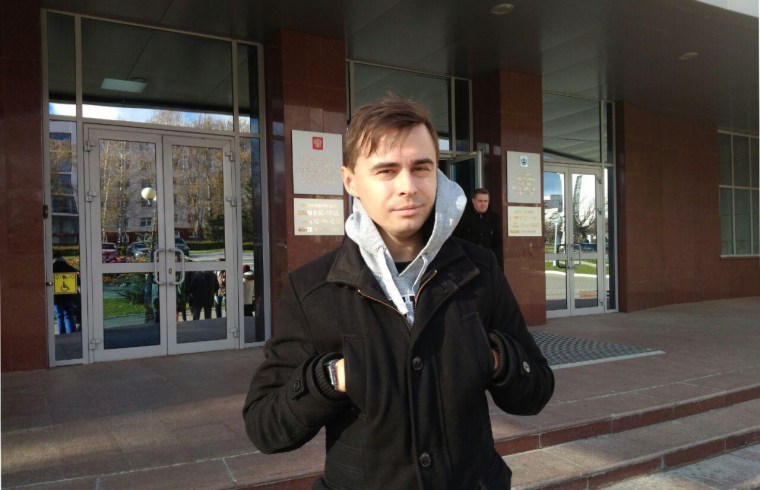Vilnius, Lithuania, March 9, 2021 — Russian authorities should drop all charges against journalist Aleksey Mironov and allow the press to cover protests and other political events without fear, the Committee to Protect Journalists said today.
On March 5, police in Cheboksary, the capital of the central Russian autonomous republic of Chuvashia, detained Mironov, a freelance camera operator, at his home, and brought him to the city’s First Police Station for questioning, according to news reports and the journalist, who spoke to CPJ in a phone interview.
Officers interrogated Mironov for about four hours about his alleged participation in a January 23 rally in support of Russian opposition leader Alexei Navalny, he said. Mironov told CPJ that he covered that rally on assignment for the U.S. Congress-funded broadcaster Radio Free Europe/Radio Liberty (RFE/RL), as the broadcaster also reported.
Police released Mironov after charging him with participating in an unauthorized protest, he said; if convicted, he could face up to 15 days in detention, according to Russia’s administrative code.
Officers told the journalist that he will receive a notification about his trial date via text message, he told CPJ.
“Russian authorities should drop their trumped-up charges against RFE/RL camera operator Aleksey Mironov and cease harassing journalists who covered protests in support of Alexei Navalny earlier this year,” said Gulnoza Said, CPJ’s Europe and Central Asia program coordinator, in New York. “Journalists should be allowed to do their jobs without fear, and should not be fined or imprisoned for their work.”
On January 23, police in at least 20 cities throughout Russia detained, beat, and otherwise interfered with the work of at least 58 journalists while they covered protests in support of Navalny, as CPJ documented at the time.
RFE/RL’s Daria Komarova, who reported together with Mironov, was briefly detained on January 23 and released without charge, according to a report by their employer.
Rim Gilfanov, the head of RFE/RL’s Tatar-Bashkir service and its regional outlet Idel.Realii, which covers Chuvashia and other Russian regions, told CPJ via email that the agency’s correspondents “are denied accreditation as authorities label them foreign agents; they are not considered journalists but ordinary citizens participating in the rallies.”
Andrey Shary, the general director of RFE/RL’s legal entity in Russia, told CPJ via email that the agency’s journalists are treated differently throughout the country, and correspondents in places like Chuvashia were treated more severely than employees in cities like Moscow.
Olga Pavlova, deputy head of the Chuvashian Ministry of Interior’s Department of Information and Public Relations, told CPJ in a phone call that the ministry would not comment on Mironov’s case.
